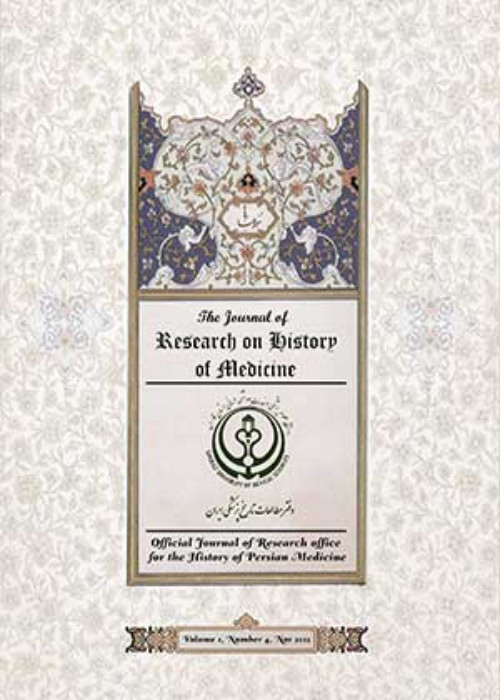Analyzing the Causes and Treatment of Reproductive Disorders in Women from the Perspective of Muslim Physicians
Author(s):
Abstract:
Obstetrics and Gynecology as one of the most important branches of modern medicine¡ enjoys a thousand-year history of the views of scientists and physicians of various civilizations of India¡ Greece¡ Iran and other nations. This field of study from ancient times¡ has been considered as one of the oldest professions in the world¡ dating back to the length of human life. Obstetrics and Gynecology¡ as an academic discipline¡ not only is related to the birth or pregnancy¡ but has also been playing an important role in the treatment of women. According to historical resources¡ Islamic medicine is indebted to Greece and Rome¡ and many works of Islamic medicine root in Greek schools. It should be borne in mind that Greek medicine owes its turn to Mesopotamia¡ Egypt¡ Persia and India¡ respectively. In the Islamic period¡ based on Islamic law¡ specific instructions for the survival of human life¡ the importance of marriage and family formation and physical health of men and women are taken to a formal program. Many works in the field of midwifery and gynecology at the beginning of the Islamic period have been developed which are determined by examining the physicians of Islamic civilization¡ also known as the majority of uterine diseases. Dystocia¡ infertility and other diseases were treated among women such physicians theoretically¡ have written treatises on midwifery and gynecology¡ or at least chapters of their books were dedicated to issues. The present study is aimed at surveying Muslim Physicians views on the etiology and treatment plans for Uterus diseases. The dominant presupposition serves the fact that Muslim physicians were knowledgeable about such problems¡ and provided convenient clinical remedies to cure them. The analytic-descriptive nature of this study has taken advantage of library documents to describe various treatment plans and explain their diversities in managing Uterus-related issues. The study proceeds to conclude that most Muslim physicians agreed with each other on surgical and medicinal techniques to manage Uterus-related diseases; they did not believe in superstition or magic though.
Keywords:
Language:
Persian
Published:
Journal of Research on History of Medicine, Volume:6 Issue: 1, Feb 2017
Page:
37
magiran.com/p1665069
دانلود و مطالعه متن این مقاله با یکی از روشهای زیر امکان پذیر است:
اشتراک شخصی
با عضویت و پرداخت آنلاین حق اشتراک یکساله به مبلغ 1,390,000ريال میتوانید 70 عنوان مطلب دانلود کنید!
اشتراک سازمانی
به کتابخانه دانشگاه یا محل کار خود پیشنهاد کنید تا اشتراک سازمانی این پایگاه را برای دسترسی نامحدود همه کاربران به متن مطالب تهیه نمایند!
توجه!
- حق عضویت دریافتی صرف حمایت از نشریات عضو و نگهداری، تکمیل و توسعه مگیران میشود.
- پرداخت حق اشتراک و دانلود مقالات اجازه بازنشر آن در سایر رسانههای چاپی و دیجیتال را به کاربر نمیدهد.
دسترسی سراسری کاربران دانشگاه پیام نور!
اعضای هیئت علمی و دانشجویان دانشگاه پیام نور در سراسر کشور، در صورت ثبت نام با ایمیل دانشگاهی، تا پایان فروردین ماه 1403 به مقالات سایت دسترسی خواهند داشت!
In order to view content subscription is required
Personal subscription
Subscribe magiran.com for 70 € euros via PayPal and download 70 articles during a year.
Organization subscription
Please contact us to subscribe your university or library for unlimited access!



